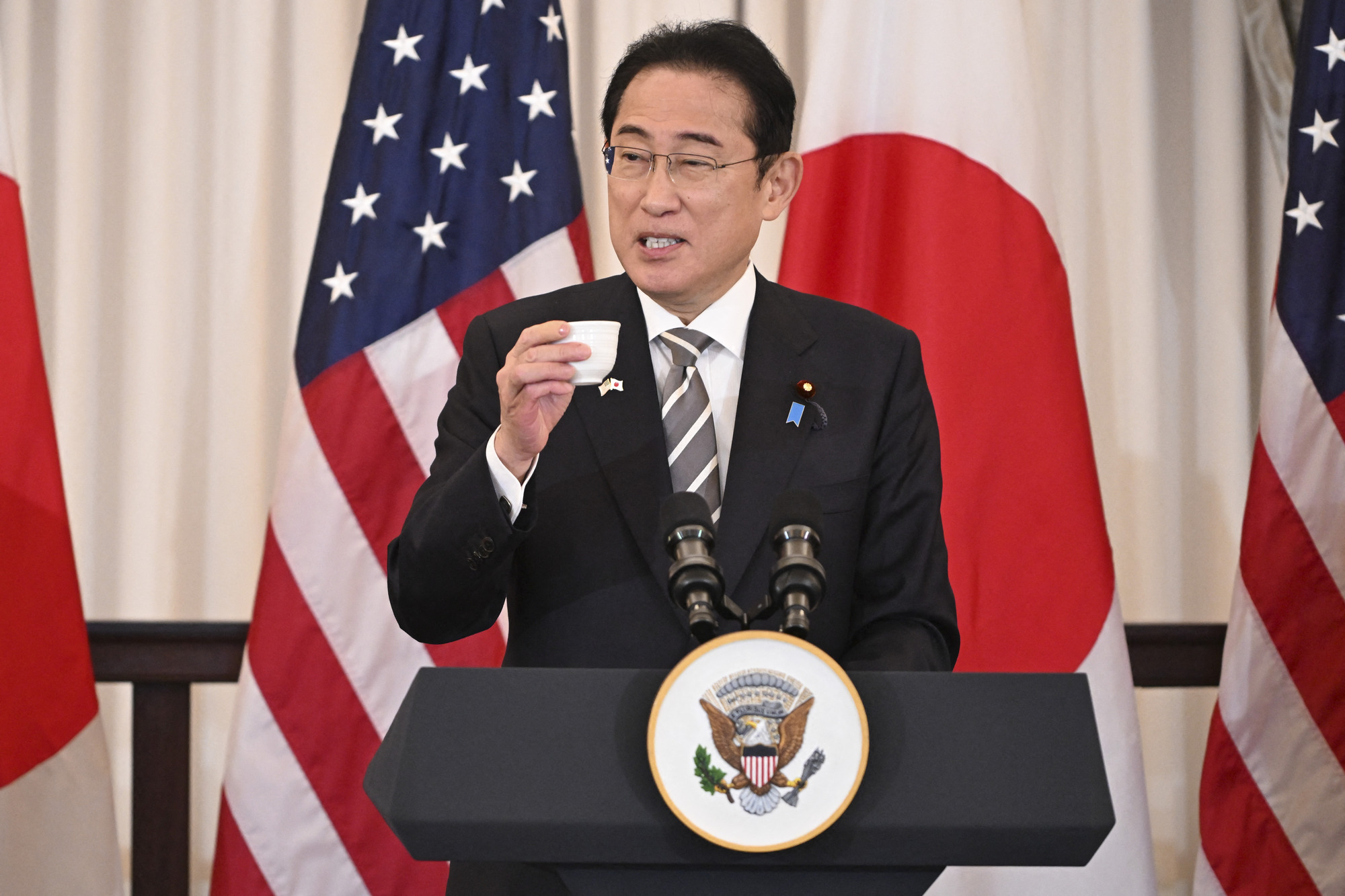Japanese Prime Minister Fumio Kishida made a Biden-esque slip in a press conference at the White House this week. He referred to China as Japan’s ally before quickly correcting himself —he meant the USA. It was the only wrinkle on an otherwise extraordinarily positive meeting that saw over 70 new cooperation agreements signed between Japan and the US.
President Biden called it “the most significant upgrade in our alliance since it was first established”. In Tokyo, the historic visit — the first by a Japanese premier in nine years — is being sold to the public as a sign that Japan is back as a major player in international affairs. But how much of this is just hype?
Certainly, the US sees Japan as a vital player in the effort to contain Chinese aggression, with Taiwan a pressing concern. And Kishida has pledged to significantly increase military spending in the face of belligerence from Beijing and Pyongyang, besides announcing renewed and strengthened military cooperation with America. Japan’s commitment to pacifism looks effectively over.
Elsewhere, the country has been working hard to improve its geopolitical significance. Relations with South Korea have improved through the trilateral treaty with the US. Then there is the defence pact with the UK signed by Kishida and Rishi Sunak in January 2023. Japan’s membership of the “Quad” alongside the US, India and Australia, aimed at cooperation in Indo-Pacific issues, is also a source of pride.
Some believe Japan could potentially play a role in the Middle East conflict too, if only as a mediator. Japan, despite being officially supportive of Israel, has deftly managed to keep its relations with the Arab world intact. Most significant is its hotline to Tehran: Kishida has spoken to Iranian President Ebrahim Raisi in recent months in an attempt to seek help in defusing the situation in Gaza.
On the other hand, there was something about the pomp and circumstance of the Kishida visit — a marching band, a black-tie dinner — that suggested the image of power and partnership was being overplayed. One of the announcements — that a Japanese astronaut would become the first non-American to walk on the moon, as part of Nasa’s upcoming Artemis missions — looked like a crowd-pleasing novelty.
Kishida has as much reason as Biden to grandstand on the international stage to divert attention from domestic woes. He is still mired in the kickback scandal that beset his party late last year, and he’s never quite regained the public trust he lost when he authorised, at huge public expense, a state funeral for Shinzo Abe.
He, and Japan, have other problems. Despite the recent interest rate hike being broadly welcomed as a step in the right direction for the Japanese economy, the yen remains weak and the country remains hugely indebted. Not everyone has faith that those ambitious plans for increased military expenditure will be possible.
The PM’s image here in Japan is of someone who is well-meaning but clumsy and slow. Considering the readiness with which Japanese prime ministers are pressured into resigning, he seems to be banking a lot on his image as an international statesman — of a reinvigorated nation — securing his power.
It’s a gamble, especially as even if Japan is slowly awakening from decades-long hibernation, it still has a long way to go. And looming over all of Kishida’s efforts — and Biden’s — is the spectre of the return of Donald Trump. This is so often discussed here that new words have been coined to express its likelihood (“moshi-tora” means “if Trump”). Whatever plans were hatched between Japan and the US could easily be upset by a return of the great disrupter, which is viewed in Tokyo as more likely than the long-term survival of Kishida.











Join the discussion
Join like minded readers that support our journalism by becoming a paid subscriber
To join the discussion in the comments, become a paid subscriber.
Join like minded readers that support our journalism, read unlimited articles and enjoy other subscriber-only benefits.
Subscribe